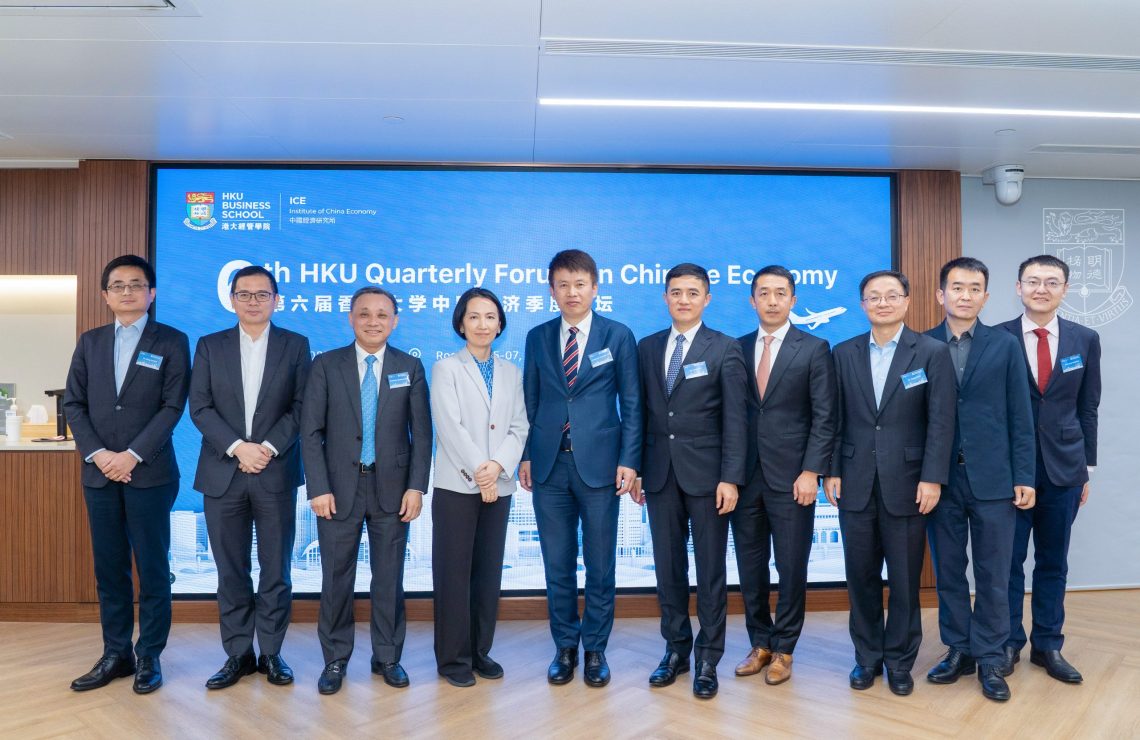
Sponsors’ Networks Take Centre Stage in SPAC Success
Special purpose acquisition companies (SPACs) – the shell companies whose sole purpose is to identify a private firm to merge with – have become an increasingly important channel for firms to raise money. In 2020, for instance, in the U.S. alone, 248 SPAC IPOS raised $83.4 billion, much more than that raised by traditional IPOs. However, SPACs are also known for underperforming after the acquisition. Since the identity of the merged firm is not known prior to the IPO, and there is little other advance information, investors must place their trust in SPAC sponsors. A recent research by the scholars from the University of Hong Kong (HKU) shows there are discernible factors that can indicate the relative success of a SPAC.
The research was conducted by Professor Chen Lin, Chair of Finance and Stelux Professor in Finance, Professor Roni Michaely, Professor in Finance, Dr. Fangzhou Lu, Assistant Professor in Finance, and Ms. Shihua Qin, Research Postgraduate Student from HKU Business School.
SPAC sponsors are more important than in traditional IPOs because, similar to VC’s general partners, investors rely on them to select the right firm to merge with later. The sponsors are also subject to few checks and balances, and a large part of their compensation is not tied to long-term performance, hence increasing the likelihood of less successful deals. All this means that the credentials, reputation, and quality of SPAC sponsors, which the research measures using their network centrality, can be essential to a SPAC IPO’s eventual success. Network centrality measures how connected managers are, the extent to which they can exert influence in a social network, and the ability to obtain information. These features make network centrality a good proxy for the reputation, experience, and quality of SPACs sponsors. This research shows that the strength and extent of sponsors’ network connections in the private equity and venture capital industries is a major predictor of their performance. Sponsors with high network centrality are associated with better IPO fundraising, better acquisition targets, and better long-run stock returns, as well as the significantly higher operational performance of the target firm post-merger.
The research used data from 390 SPACs that had their IPOs between 2003 and June 2020, including information on sponsors’ work experience and network connections in relation to private equities (PEs) and venture capitals (VCs). The decision to focus on PE/VC network centrality to indicate sponsor quality was based on other evidence that having strong networks of social and professional relationships is important when picking and sourcing good merger targets. Better networks also usually mean access to more potential funding during IPOs, as well as better access to institutional investors (or PIPE, for private investment in public equity), which is usually needed for a business combination to be successfully completed. Finally, network centrality also signals to investors that the sponsors have some recognition of success and are regarded as trustworthy by others.
The research finds that fund-raising was significantly enhanced by sponsors with high PE/VC network centrality over those with low centrality. A one standard deviation increase in centrality translated into a $44.67 million increase in IPO proceeds and a $53.87 million increase in PIPE investors. These results are substantial given the average IPO in the research sample had proceeds totaling $198 million, and the average PIPE investment was $79 million.
Well-connected sponsors were also able to more quickly identify target firms to merge with, taking two months less to complete the business combination. The average, in comparison, was 20.5 months. And they revealed more information about their target based on the word count of their Form S-4 filings. A one standard deviation increase in network centrality was associated with a 12% increase in the quantity of information disclosed. Considering the general paucity of information on SPAC IPOs, this is something that investors should welcome as more information can potentially lead to greater business combination success and operational performance. In fact, this is what the team saw in further investigations. A one standard deviation in network centrality led to a 3.7% greater probability that the merger and acquisition would succeed. Most importantly, it was also associated with better long-term performance: revenue was 15.2% higher before the merge, and Tobin’s Q was 17.4% higher after the merge. And a one standard deviation increase in PE network centrality leads to a 2.1% higher post-merger monthly Fama-French three-factor alpha during the 2-year period after the business combination. All of these support the notion that sponsors with higher network centrality are better at sourcing and picking target firms to work with, and they also to some extent have a positive impact on the firms after the merge.
One implication of the result is that regulators might want to consider implementing some pre-requisite qualifications of SPAC sponsors, and put some restrictions on how they are being compensated. By improving the quality of SPAC sponsors and limiting the dilution structure, SPACs can possibly become a viable channel for firms to go public. Given SPACs’ poor long-term performance, implementing these policy recommendations is also likely to reduce SPACs overall underperformance and better protect investors when they invest in these instruments.
Full version of this research paper:
SPAC IPOs and Sponsor Network Centrality
https://papers.ssrn.com/sol3/papers.cfm?abstract_id=3856181







